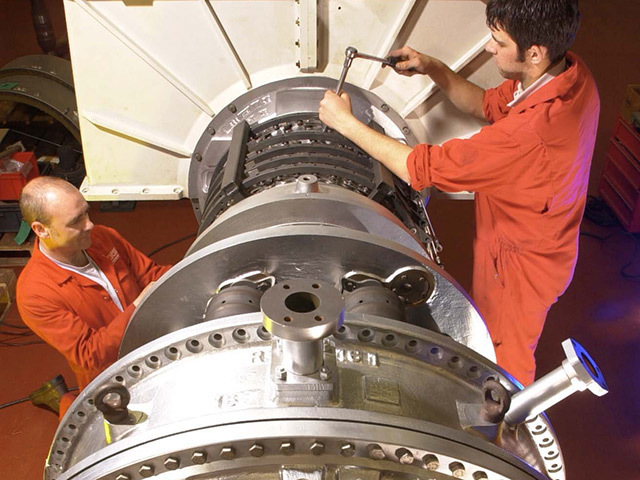
GE could be set to snap up French energy firm Alstom in a £7.75billion deal in their largest ever acquisition, people with knowledge of the matter said.
An agreement may be announced as early as next week, said the people, who asked not to be identified because the talks are private.
The US company may pay more than $13billion (£7.745bn) for Alstom, one of the people said. That would be about 25 percent more than Alstom’s current market value.
The deal would give the US engineering group control over the French multinational’s steam turbine, power and railway businesses as Europe’s economy begins to revive.
Alstom’s 20 percent share drop over the past year has made it a cheaper target for GE Chief Executive Officer Jeffrey Immelt.
Immelt will be able to tap GE’s foreign cash reserves to finance the deal, one of the people said. GE had about $89 billion in cash at the end of last year, including $57 billion held outside the U.S.
GE has been shifting its focus toward units that make jet engines, locomotives and industrial equipment and shrinking the finance division, called GE Capital, which imperiled the company during the global financial crisis. Alstom, based in the Paris suburb of Levallois-Perret, has been selling assets to cut costs and reduce debt.
Fairfield, Connecticut-based GE has the support of Alstom shareholder Bouygues SA, said the people. The French conglomerate owns about 29 percent of Alstom, data compiled by Bloomberg show.
“Alstom is not informed of any potential public tender offer for the shares of the company,” it said in an e-mailed statement today. “The group constantly reviews the strategic options of its businesses.” Seth Martin, a spokesman for GE, declined to comment. A spokesman for Bouygues couldn’t be reached.
Immelt said this month that the company is looking to make acquisitions in the range of $1 billion to $4 billion and will spend more for targets “that have excellent values, strong synergies, fit our growth strategies and are immediately accretive.”
Alstom is the world leader in turbines for dams, while it lags GE and Siemens AG in gas turbines. It is the third-largest maker of power transmission gear after ABB Ltd. and Siemens, and competes with the German company and Canada’s Bombardier Inc. in the market for trains and other rail equipment.
In January the company cut its profit forecast for the second time in nine months because of weaker-than-expected sales of thermal-power equipment. Chief Executive Officer Patrick Kron in November outlined plans to sell as much as 2 billion euros in assets including a minority stake in its rail unit by the end of 2014.
Alstom also is cutting 1,300 jobs, mainly at its information-technology department and boiler unit, to reduce costs by as much as 1.5 billion euros by April 2016. The French company is pushing for savings in Europe while investing in partnerships and plants in countries such as China, Russia, Brazil, India and South Africa to tap demand for trains and turbines.
A combination does raise the prospect of European antitrust issues. United Parcel Service Inc., the world’s biggest package- delivery company, scrapped a 5.16 billion euro bid for TNT Express NV last year after European regulators moved to block the deal. GE’s attempt to buy Honeywell International Inc. in 2000 was scuttled as well.
GE and Alstom have already held talks with French government officials about the proposed takeover to preemptively address potential political concerns, one of the people familiar with the situation said.
GE on April 17 posted first-quarter earnings that beat analysts’ estimates, buoyed by expanding margins in the industrial business that makes products such as jet engines.
Immelt has been shedding assets, including the sale of NBC Universal last year for $16.7 billion, and using some of the cash for acquisitions that fit his vision for the company. The company has made several purchases in the oil and gas industry, including paying $3.3 billion in April 2013 for Lufkin Industries Inc.
This will be GE’s biggest acquisition, according to data compiled by Bloomberg dating back to 1986. The only deal that would have been larger was its attempt more than a decade ago to buy Honeywell for about $53 billion, including the assumption of debt, the data show.
Recommended for you
